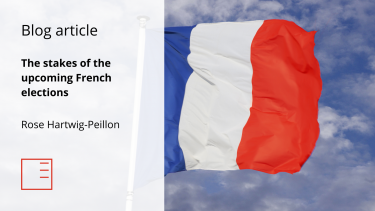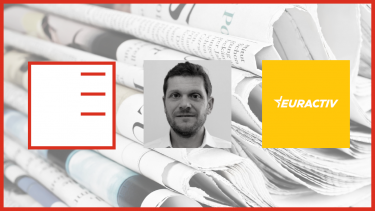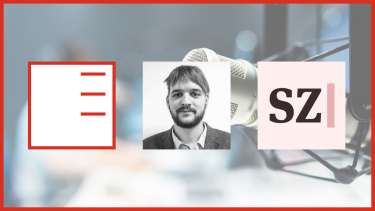Commentary | how to think about unanimity in the EU
With the opening of accession talks with Ukraine and Moldova, the debate in the European Union on the transition from unanimity to qualified majority voting in some areas has been reignited. Although this is not a new debate, it is worth looking at the current situation, describing the problems caused by unanimity and proposing concrete solutions. For more, see Vit Havelka's commentary.
Show moreREPORT | What future for QMV in Foreign and Security Policy?
The debate focused on the possible move to qualified majority voting in the EU's Foreign and Security Policy. The participants in the debate discussed the possible negative and positive aspects of the decision. The debate covered topics such as the fear of over-voting as a possible aspect of division within the Union or the ineffectiveness of the current consensus approach.
Show moreSeznam zprávy | Will Ukraine join the EU in 2030? A consolation for Kyiv and a signal for Moscow
Talks on Ukraine's integration into the European Union are about to begin, and despite the proclamations, the date of entry cannot be set in advance. Žiga Faktor, head of the Brussels office of the EUROPEUM Institute, emphasized that the latest proclamations on Ukraine's EU membership reflect a shift in the approach of member countries to EU enlargement.
Show more
Český rozhlas Radiožurnál: New migration politics of European Union
In matters of migration and internal affairs, voting in the EU is made by a qualified majority. However, representatives of Hungary and Poland are in favor of a unanimous decision. For Radiožurnál, our senior researcher Vít Havelka commented on the issues of the new EU migration policy.
Show more
POLICY PAPER | QMV in CFSP: Impending necessity or resurfacing utopia?
Miroslava Pisklová writes about a discussion on potential broadening of the qualified majority voting (QMV) system to more of the remaining policy areas in the Council of the EU in which it is not yet used, namely the EU´s Common Foreign and Security Policy (CFSP) that has recently gained momentum. This publication aims to analyse the advantages and disadvantages of introduction of the QMV in CFSP of the EU with a focus on the potential impact on smaller member states.
Show moreSeznamzpravy.cz: Comment: Ukraine in the EU? The biggest risk is empty promises
Our Research Fellow Jana Juzova commented on Ukraine's EU integration. Ukraine's economic level and lack of progress in democratic reforms, among other factors, complicate the EU's enlargement to include Ukraine. Accession would affect the flow of money redistributed from European funds, and Ukraine's membership would also have an impact on the EU Council's voting deliberations and the number of MEP seats.
Show moreBLOG: The stakes of the upcoming French elections
Rose Hartwig-Peillon writes in her blog about the upcoming French elections. How does the war in Ukraine affect the French presidential election, is Macron already the clear winner of the election or is it not a certainty? Is there a lack of a proper national debate in France?
Show more PDF
MINILATERAL COOPERATION IN THE EU: Internal Cohesion, Group Dynamics, and Voting Behaviour of Selected State Blocks
Our research fellow Vít Havelka contributed to the publication "MINILATERAL COOPERATION IN THE EU: Internal Cohesion, Group Dynamics, and Voting Behaviour of Selected State Blocks", published by the Institute for Foreign Affairs and Trade. He is the author of a chapter on the Visegrad Group.
Show more
EURACTIV: Babis’ defeat will weaken the link between Prague and Budapest
Our director Zdeněk Beránek spoke about the relations between Czech Prime Minister Andrej Babiš and his Hungarian counterpart Victor Orbán. Both are harsh critics of the EU institutions. However, the defeat of Babiš in recent parliamentary elections could hurt relations between the capitals.
Show more
Seznam Zprávy: The end of the myth of the "bad" EU. It rarely happens that the Czech Republic is outvoted
Our research fellow Vít Havelka commented for Seznam Zprávy on the results of a study on voting in the Council of the EU, which focused on cooperation in voting by individual member states within various groupings such as the Visegrad Four, Benelux and others.
Show more
Staroměstské náměstí 4/1
Prague 1 - Staré Město
110 00
tel.: +420 212 246 552
email: europeum@europeum.org
https://www.europeum.org









